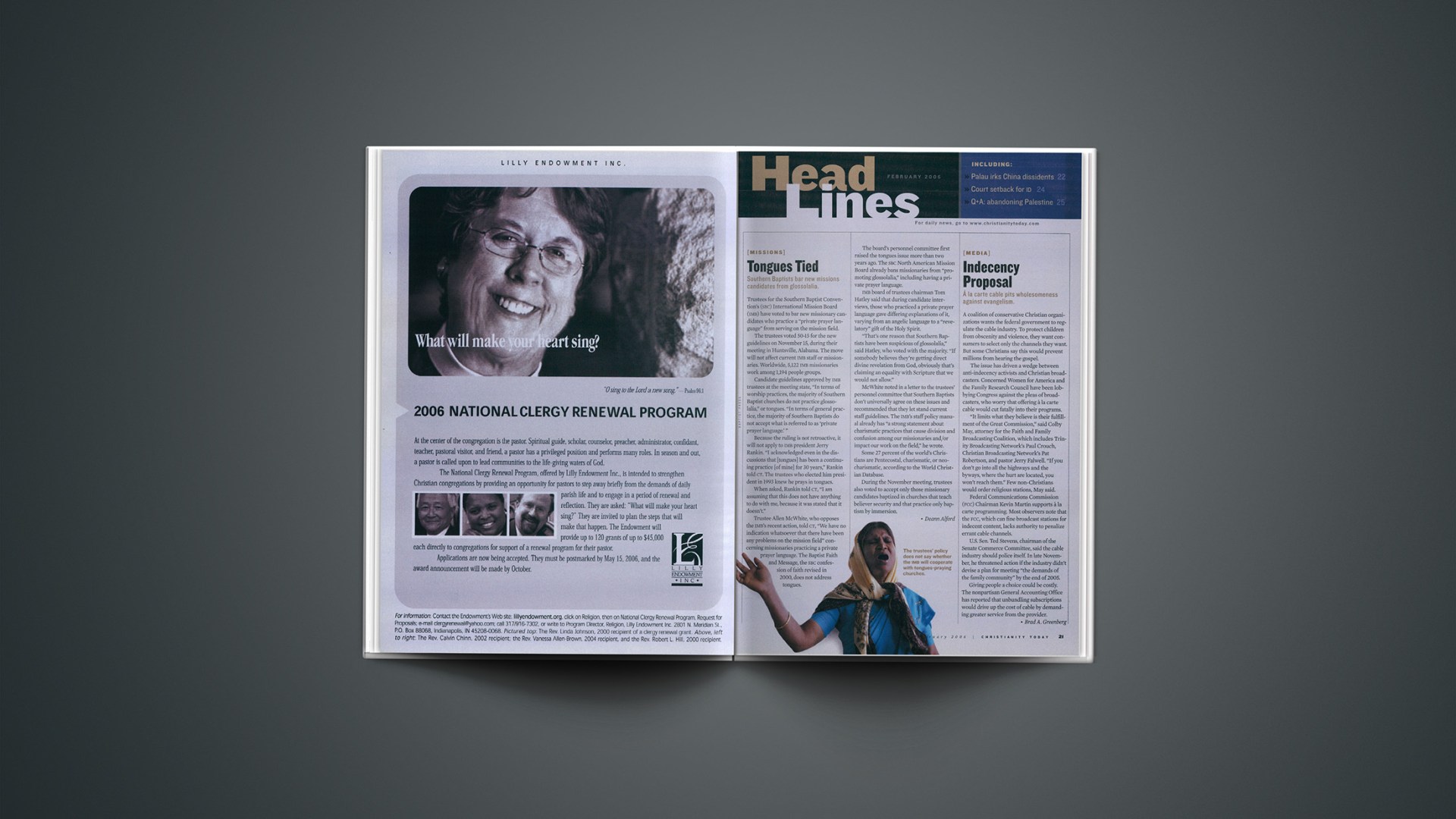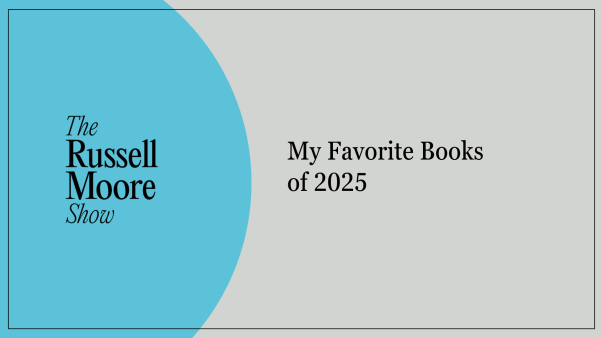Trustees for the Southern Baptist Convention’s (SBC) International Mission Board (IMB) have voted to bar new missionary candidates who practice a “private prayer language” from serving on the mission field.
The trustees voted 50-15 for the new guidelines on November 15, during their meeting in Huntsville, Alabama. The move will not affect current IMB staff or missionaries. Worldwide, 5,122 IMB missionaries work among 1,194 people groups.
Candidate guidelines approved by IMB trustees at the meeting state, “In terms of worship practices, the majority of Southern Baptist churches do not practice glossolalia,” or tongues. “In terms of general practice, the majority of Southern Baptists do not accept what is referred to as ‘private prayer language.’ “
Because the ruling is not retroactive, it will not apply to IMB president Jerry Rankin. “I acknowledged even in the discussions that [tongues] has been a continuing practice [of mine] for 30 years,” Rankin told CT. The trustees who elected him president in 1993 knew he prays in tongues.
When asked, Rankin told CT, “I am assuming that this does not have anything to do with me, because it was stated that it doesn’t.”
Trustee Allen McWhite, who opposes the IMB’s recent action, told CT, “We have no indication whatsoever that there have been any problems on the mission field” concerning missionaries practicing a private prayer language. The Baptist Faith and Message, the SBC confession of faith revised in 2000, does not address tongues.
The board’s personnel committee first raised the tongues issue more than two years ago. The SBC North American Mission Board already bans missionaries from “promoting glossolalia,” including having a private prayer language.
IMB board of trustees chairman Tom Hatley said that during candidate interviews, those who practiced a private prayer language gave differing explanations of it, varying from an angelic language to a “revelatory” gift of the Holy Spirit.
“That’s one reason that Southern Baptists have been suspicious of glossolalia,” said Hatley, who voted with the majority. “If somebody believes they’re getting direct divine revelation from God, obviously that’s claiming an equality with Scripture that we would not allow.”
McWhite noted in a letter to the trustees’ personnel committee that Southern Baptists don’t universally agree on these issues and recommended that they let stand current staff guidelines. The IMB’s staff policy manual already has “a strong statement about charismatic practices that cause division and confusion among our missionaries and/or impact our work on the field,” he wrote.
Some 27 percent of the world’s Christians are Pentecostal, charismatic, or neo-charismatic, according to the World Christian Database.
During the November meeting, trustees also voted to accept only those missionary candidates baptized in churches that teach believer security and that practice only baptism by immersion.
Copyright © 2006 Christianity Today. Click for reprint information.
Related Elsewhere:
News elsewhere on the controversy include:
Southern Baptist agency nixes controversial charismatic practice for new missionaries | The International Mission Board will no longer appoint Southern Baptist missionaries who use a “private prayer language” — a controversial practice related to speaking in tongues and previously practiced by IMB president Jerry Rankin. (Associated Baptist Press, November 30, 2005)
Conflicting reports on IMB vote tally raise questions about board’s intent | Conflicting reports about the vote totals for a new International Mission Board policy on speaking in tongues are focusing public attention on what may be a deeper disagreement about the agency’s leadership. Wade Burleson, an IMB trustee from Oklahoma who opposed the policy change, said the tongues policy puts the missionary-sending agency “in the absurd position of having the president of our International Mission Board not qualified to serve as a field missionary. This does not make sense.” (Associated Baptist Press, December 9, 2005)
Trustees appoint 89 missionaries, adopt personnel measures | Trustees approved a policy opposing a missionary candidate’s practice of using a “private prayer language.” (third item) (Baptist Press, Nov 22, 2005)










